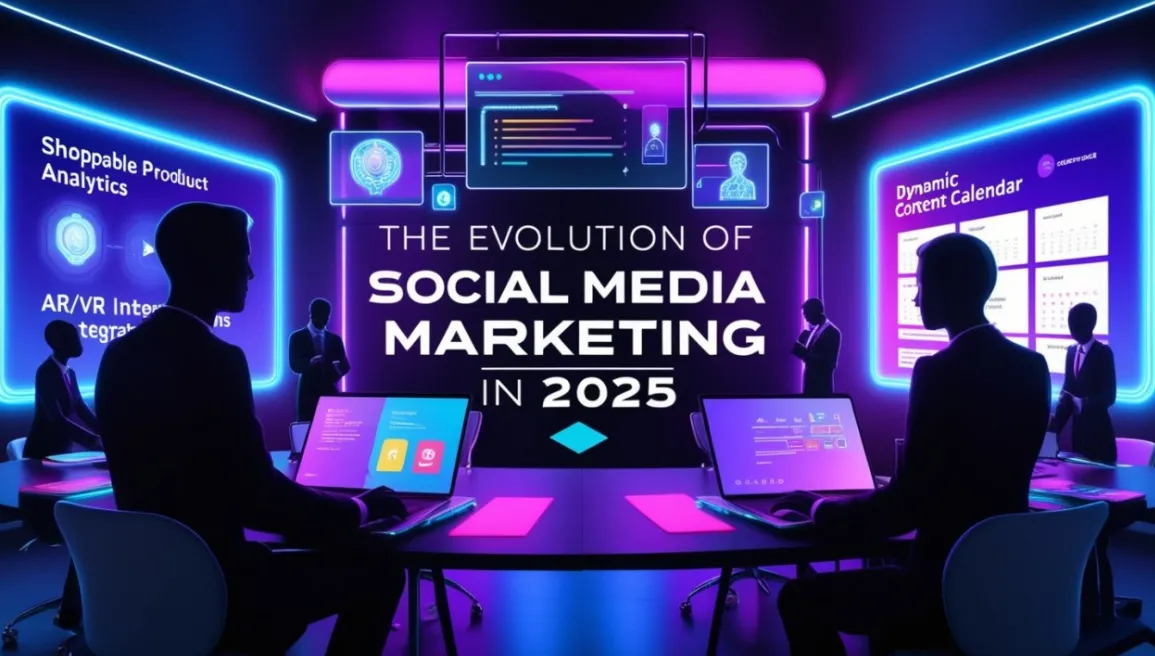The Evolution of Social Media Marketing: Trends and Strategies for 2025
Introduction
Social media marketing has evolved significantly over the past decade, driven by technological advancements, changing user behaviors, and shifting platform algorithms. In 2025, businesses must adopt new strategies to stay competitive in an increasingly digital world. This article explores key trends shaping social media marketing in 2025 and strategies businesses can implement to maximize their online presence.
The Evolution of Social Media Marketing
Social media marketing has come a long way from its early days of simple organic engagement. Initially, platforms like Facebook, Twitter, and Instagram focused on social interactions, but they have since transformed into powerful marketing channels. Businesses today leverage AI-driven analytics, influencer collaborations, and immersive content to reach their target audiences effectively.
The rise of short-form video content, interactive ads, and personalized experiences has further revolutionized how brands engage with consumers. With emerging technologies like augmented reality (AR) and artificial intelligence (AI), the future of social media marketing is poised for even greater innovation.
Key Trends Shaping Social Media Marketing in 2025
1. AI-Powered Content Creation and Personalization
AI is playing a central role in social media marketing, enabling brands to create highly personalized content. Advanced algorithms analyze user behavior, interests, and interactions to deliver tailored content that resonates with individual consumers. AI-powered chatbots also enhance customer engagement, providing instant responses and improving customer experience.
2. Short-Form and Interactive Video Content
Platforms like TikTok, Instagram Reels, and YouTube Shorts have revolutionized content consumption. In 2025, short-form videos will continue to dominate, with brands focusing on engaging storytelling, live interactions, and user-generated content. Interactive videos, such as shoppable reels and clickable content, will further enhance engagement and conversion rates.
3. The Growth of Augmented Reality (AR) and Virtual Reality (VR)
AR and VR are transforming how brands interact with consumers. AR-powered filters, virtual try-ons, and immersive experiences are enhancing product discovery and engagement. Companies investing in AR-driven campaigns will see increased customer interaction and brand loyalty.
4. The Rise of Decentralized Social Networks
Privacy concerns and data security are driving the growth of decentralized social networks. Platforms based on blockchain technology provide users with greater control over their data, reducing reliance on traditional advertising models. Marketers will need to adapt by exploring new ways to connect with audiences on decentralized platforms.
5. Influencer Marketing 2.0: The Rise of Micro and Nano-Influencers
While celebrity endorsements still hold value, brands are shifting towards micro and nano-influencers who have highly engaged niche audiences. These influencers offer more authentic connections, leading to higher trust and better conversion rates.
6. Social Commerce and Seamless Shopping Experiences
Social commerce is expanding, allowing users to shop directly within social media platforms. Features like Instagram Shops, TikTok Shopping, and Facebook Marketplace enable businesses to create seamless shopping experiences. AI-driven recommendations and live shopping events will further enhance consumer buying behavior.
7. Voice and Conversational Marketing
Voice search and conversational AI are gaining traction in digital marketing. Social platforms are integrating voice assistants and AI-driven chatbots to provide personalized recommendations and instant customer support. Brands that optimize their content for voice search will gain a competitive edge.
8. Sustainability and Social Responsibility
Consumers are becoming more conscious of ethical and sustainable practices. Brands that align with social responsibility initiatives and transparency in their marketing strategies will build stronger relationships with their audiences.
Strategies for Social Media Marketing Success in 2025
1. Leverage AI for Smart Content Creation
Businesses should utilize AI-powered tools to generate content ideas, automate social media posts, and analyze user engagement. AI-driven analytics will help refine content strategies, ensuring maximum reach and impact.
2. Prioritize Video Content and Interactive Engagement
Brands should focus on creating high-quality short-form videos, live streams, and interactive content. User engagement can be enhanced through polls, quizzes, and gamified experiences, fostering a deeper connection with audiences.
3. Embrace Augmented Reality for Unique Brand Experiences
Implementing AR features such as virtual try-ons, interactive ads, and immersive experiences can set brands apart. AR-driven marketing campaigns enhance user engagement and provide innovative ways to showcase products.
4. Invest in Micro-Influencers for Authentic Reach
Partnering with micro-influencers who have a loyal and engaged audience can improve brand trust and conversions. These influencers provide more genuine recommendations, leading to higher customer loyalty.
5. Optimize for Social Commerce and Frictionless Transactions
Brands should ensure their social media shops are optimized for seamless purchases. Incorporating AI-driven recommendations, live shopping events, and influencer partnerships can boost sales and engagement.
6. Utilize Voice Search and Conversational AI
With the growing use of voice search, businesses should optimize their content for voice assistants. AI-driven chatbots can also provide instant customer support, improving overall user experience.
7. Align with Social Responsibility and Transparency
Consumers are drawn to brands that demonstrate corporate responsibility. Transparency in marketing messages, ethical practices, and sustainability initiatives will enhance brand reputation and trust.
Conclusion
The evolution of social media marketing in 2025 is driven by technological advancements, changing consumer behaviors, and platform innovations. Businesses must adapt to trends such as AI-powered personalization, short-form video dominance, AR-driven experiences, and decentralized social networks. By implementing strategic approaches, brands can enhance engagement, build trust, and drive long-term success in the digital landscape. Staying ahead in social media marketing requires continuous learning, agility, and a commitment to delivering meaningful and interactive content.




